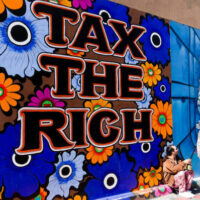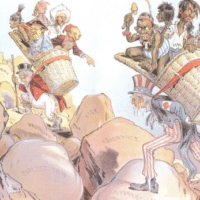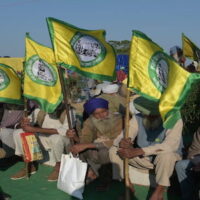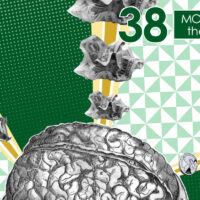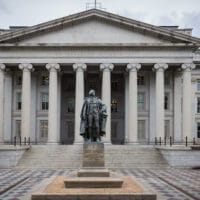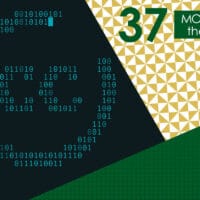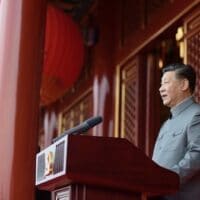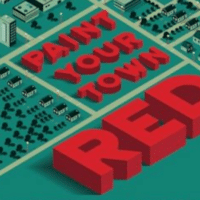-
Progressive taxation for our times
As developing countries struggle to cope with the pandemic, they risk being set back further by restrictive fiscal policies. These were imposed by rich countries who no longer practice them if they ever did. Instead, the global South urgently needs bold policies to ensure adequate relief, recovery and reform.
-
The Western left’s collaboration with the Western bourgeoisie
Changes in historical conditions can elevate a secondary contradiction to a primary, and antagonistic contradiction, in an instant.
-
Is public investment holding up global capitalism’s dynamism?
Capitalism is supposed to be all about economic growth, through the dynamism that is created by competition. This growth is meant to be driven by investment (or accumulation) which, in turn, is used to justify the shares of national income that are delivered to private profits, to the owners of capital.
-
India’s data harvest
New platforms and data analytics are helping big agribusiness take over Indian agriculture. Ordinary farmers are losing out, writes Bikrum Gill.
-
Over two decades, U.S.’s global war on terror has taken nearly 1 million lives and cost $8 trillion
A new report from the Costs of War Project makes staggering estimates for the human and financial costs of the global forever wars.
-
The Philosophy of Money with Graham Hubbs
Graham Hubbs speaks with Scott Ferguson and Andrés Bernal about the relationship between Modern Monetary Theory and philosophy. Associate Professor & chair of the department of politics & philosophy at the University of Idaho, Hubbs convened a conference panel on Modern Monetary Theory at the annual meeting of the American Philosophical Association in January 2021.
-
The media myth of ‘once prosperous’ and democratic Venezuela before Chávez
Economists typically use GDP per capita to assess how rich a country is. It is basically a measure of the average income per person. If journalists cared to be at all precise when they say that Venezuela had once been “rich,” then that’s a statistic they’d cite.
-
Playing the capitalist game: heads they win, tails you lose
According to an Economic Policy Institute report, between 28 and 47 percent of U.S. private sector workers are subject to noncompete agreements.
-
Relative surplus value: The class struggle intensifies
For any working period—whether it be a day, an hour, or five minutes—part of the period is “necessary labor” and another part is “surplus labor.”
-
The household and the state
Just as a household cannot “live beyond its means” forever, and sooner or later its creditors not only stop giving loans but take away the assets of the household for defaulting on loan repayment, likewise, the State cannot “live beyond its means” forever and go on borrowing ad infinitum; sooner or later its creditors stop giving loans and even attach its assets.
-
Building Digital Commons with Cory Doctorow
Cory Doctorow joins Money on the Left to discuss what Modern Monetary Theory (MMT) means for building digital commons. He walks us through his important critical genealogy of Intellectual Property law as well as his contribution to the urgent anti-monopoly accord called the “Access to Knowledge Treaty.”
-
Creating a democratically run economy: lessons from World War II price control struggles*
Many activists in the United States are working to build a movement for a Green New Deal transformation of the economy. Not surprisingly, a growing number look to the World War II conversion of the U.S. economy from civilian to military production for inspiration and policy ideas.
-
Serve the People: The eradication of extreme poverty in China
On 25 February 2021, the Chinese government announced that extreme poverty had been abolished in China, a country of 1.4 billion people. This historic victory is a culmination of a seven-decade-long process that began with the Chinese Revolution of 1949.
-
Shoplifting is big news; stealing millions from workers is not
Urban crime is the golden child of local media, as recent FAIR coverage (6/21/21) has shown. But as FAIR’s Julie Hollar recently noted, the amount of attention given to a topic does not always reflect the seriousness of the situation.
-
The dual explanation of the crisis, the fake social turnaround by governments, the need for radical responses
The answer is plain to see: the two explanations are not contradictory. A combination of the two enables us to understand what has been happening right before our eyes.
-
Billionaire dynasties: vampires on humanity
The first decades of the 21st century have been a gilded age for the world’s super-rich. While the mass of humanity has struggled through successive economic crises, accelerating climate and environmental breakdown and now a devastating global pandemic, the billionaire class’s wealth has piled up to ever more dizzying heights.
-
China pulls itself out of poverty 100 years into its revolution
On February 25, 2021, China’s President Xi Jinping announced that his country of 1.4 billion people had pulled its people out of poverty as it is defined internationally.
-
Digital Money Beyond Blockchain with Rohan Grey
In this episode, we’re joined by Rohan Grey (@rohangrey), President of the Modern Money Network, Director of the National Jobs for All Coalition, Research Fellow at the Global Institute for Sustainable Prosperity, and JSD student at Cornell Law school. Our conversation is dedicated to Rohan’s current work on the political, economic, and cultural implications of money’s digital future.
-
Paint Your Town Red: How Preston Took Back Control and Your Town Can Too
In this timely book, Matthew Brown and Rhian E. Jones explore new forms of democratic collectivism across the UK, writes Hilary Wainwright.
-
China’s crypto crackdown spreads to Qinghai and Xinjiang
Last month, the two regions were warned about missing energy intensity reduction targets.

